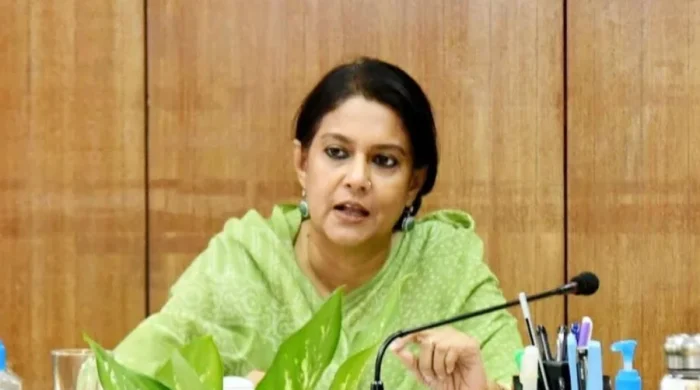

The Ministry of Environment, Forests, and Climate Change’s adviser, Syeda Rizwana Hasan, has stated that solidarity among countries affected by climate change, including Bangladesh, is more important than the quantity of aid they receive.
In an interview at the COP29, the adviser emphasized the value of working together to address climate issues and cautioned that division may backfire.
“Our negotiators unity is crucial at the COP conference,” said Rizwana. “If the focus shifts to who gets how much money, it weakens our solidarity. A lack of unity would harm us significantly.”
When asked about the nature of unity, she said: “The meetings held by representatives from various countries must continue as part of the process. If affected countries, including smaller nations like Bangladesh, remain united, it will be a major achievement of this COP.”
Addressing questions about the funds expected for climate-affected nations, Rizwana said: “The amount of money we are supposed to get is unlikely to be received in full; that much is clear. However, the focus should be on the quality of funds rather than the quantity. Will the funds come as loans, through carbon credits, or as direct grants from the UN? If we can agree on the quality of funds, that would be a victory.”
She added: “Your hope might differ from mine. For instance, you may think that receiving $1.3 billion will solve our problems. I believe focusing on the amount could fracture our unity, which would be a significant loss. Maintaining unity is where my hope lies. We must focus on the structure of the funding, ensuring it comes from public sources.”
Adviser Rizwana said that achieving quality funding would be a monumental win, particularly for vulnerable communities.
Referring to flood-affected regions like Feni, Comilla, Sherpur, and Sylhet in Bangladesh, she highlighted the $90 debt burden on each peron due to climate-related projects.
“It’s not about how much money we receive. Even if a third of our land goes underwater, no amount of money will suffice. We must advocate for mitigation efforts, reducing carbon emissions by phasing out fossil fuels,” she said.
Half of the funds, she said, should be directed towards increasing the adaptive capacities of flood-affected communities.
She underscored the importance of sustaining the climate funding process, saying: “This process must continue—not once a year but possibly twice. Securing funds is secondary; the continuity of the process is vital.”
Rizwana reiterated that Bangladesh and countries in similar situation facing the threat of submersion must demand changes from fossil fuel-reliant nations. “We must clarify our position: it’s not about seeking vast sums of money; it’s about finding solutions to our problems,” she said.
The government is currently reviewing energy policies and plans to transition from fossil fuel-based production to renewable energy.
Import tariffs are being reconsidered, and foreign investment in solar energy projects is encouraged.
She identified pollution from power plants as a major environmental concern and said this is the right time to invest in renewable energy.
Rizwana discussed the disputes surrounding Article 6, calling carbon “a weapon.”
She warned that if developed nations retain emission reductions within their borders, it would severely harm vulnerable nations.
Bangladesh, Nepal, and Bhutan share similar climate challenges, and Rizwana suggested prioritizing collective action to reduce vulnerabilities.
Discussions are ongoing about whether to emphasize adaptation, mitigation, or loss and damage. Two meetings have already taken place, and a third is scheduled in Bangladesh in January.
She also highlighted the need for technological assistance for disaster warning systems.
Waste management is a critical issue in Bangladesh, contributing 10% of greenhouse gas emissions.
Dhaka alone generates 6,000 tons of waste daily, with 73% dumped untreated into landfills, causing methane emissions.
Rizwana said Bangladesh has sought Japan’s support for sustainable waste management initiatives, including resource recovery centers, waste-to-energy plants, and sanitary landfills.
Bangladesh aims to source 40% of its energy from renewable resources by 2041, but this goal requires financial and technological support.